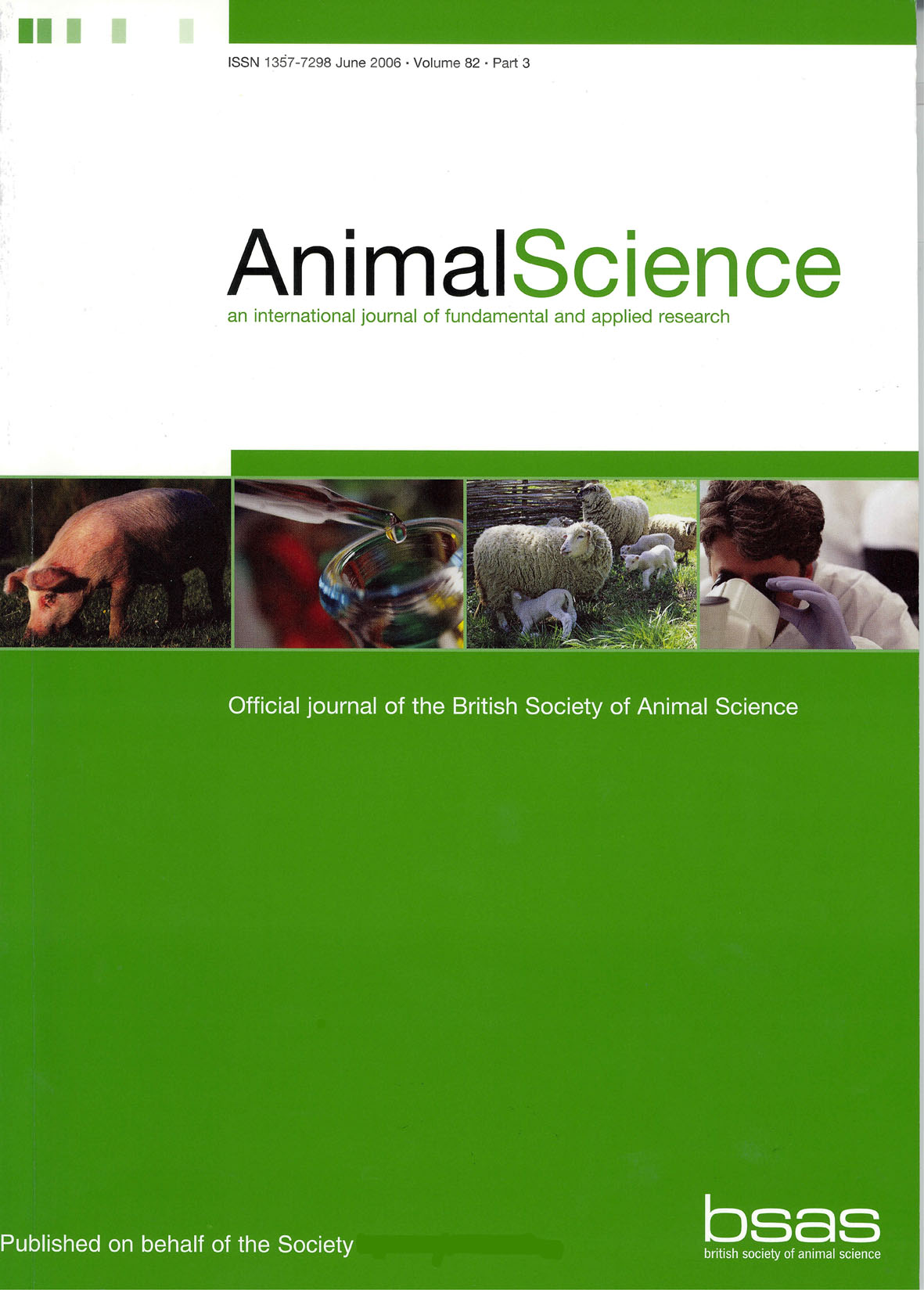Article contents
Evaluation of a slow-release form of recombinantly derived bovine somatotropin in dairy cattle
Published online by Cambridge University Press: 02 September 2010
Abstract
Dairy cattle were injected at intervals of 4 weeks with recombinantly derived bovine somatotropin (bST) i n a slow-release form (somidobove, Lilly Research Centre Ltd, Windlesham, Surrey), to examine the effect on milk production. In the first experiment with 38 autumn-calving animals in a randomized-block design, treatment lasted for 28 weeks and a control and three doses of bST: 320 (low), 640 (medium) and 960 (high) mg were compared. Over the 28 weeks the mean daily milk yields were: control 23·4, low 23·4, medium 25·4 and high 25·4 (s.e.d. 1·17) kg. Milk composition was not affected by bST. In experiment 2 with 40 autumn-calving animals, the medium dose of bST was used for 24 weeks in animals given two levels of concentrate in a factorial design. On average there was a non-significant increase in daily milk yield of 1·3 kg in the bST-treated cattle; there was no interaction between bST and level of concentrate. There were no effects of bST on milk composition. Changes in live weight and body condition of the cattle and their food intake were measured. It was concluded that the trends toward higher milk yields were supported initially at the expense of live weignt and possibly later by increased food intake. In a third experiment 10 grazing cows were given three consecutive doses of 640 mg bST and 10 similar cows acted as controls. There were no significant effects of bST on milk production and food intake. Reasons for the low responses in milk production compared with several recent American and European experiments may possibly be the pattern of use of the slow-release form of bST and the low content of dry matter in the maize silages which restricted forage intake and response in milk production.
Keywords
- Type
- Research Article
- Information
- Copyright
- Copyright © British Society of Animal Science 1991
References
REFERENCES
- 6
- Cited by


